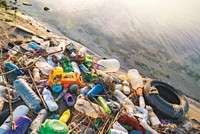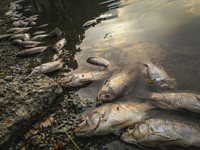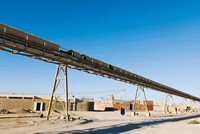Advertisement
Grab your lab coat. Let's get started
Welcome!
Welcome!
Create an account below to get 6 C&EN articles per month, receive newsletters and more - all free.
It seems this is your first time logging in online. Please enter the following information to continue.
As an ACS member you automatically get access to this site. All we need is few more details to create your reading experience.
Not you? Sign in with a different account.
Not you? Sign in with a different account.
ERROR 1
ERROR 1
ERROR 2
ERROR 2
ERROR 2
ERROR 2
ERROR 2
Password and Confirm password must match.
If you have an ACS member number, please enter it here so we can link this account to your membership. (optional)
ERROR 2
ACS values your privacy. By submitting your information, you are gaining access to C&EN and subscribing to our weekly newsletter. We use the information you provide to make your reading experience better, and we will never sell your data to third party members.
Policy
Tension Arises Among Scientific Groups Offering Advice To UN
by Cheryl Hogue
June 1, 2009
| A version of this story appeared in
Volume 87, Issue 22
As countries grapple with what to do about global warming, they depend on the Intergovernmental Panel on Climate Change, a United Nations' body, to provide them with reliable scientific advice. Now, a new scientific organization wants to become the UN's analogous panel for advice on global efforts to improve management of chemicals—from manufacture to transportation, use, and disposal. The group claims it is ready to fill that role and boasts that it is free of conflict-of-interest concerns because it has no industry members.
But not so fast, say three long-established chemistry-related scientific groups that are also ready to provide the UN with advice on managing chemicals. They say their members, regardless of whether they are employed by industry, can contribute to this global effort and keep public interest front and center.
All of this makes for a story filled with acronyms of organizations with the word "international" in their names.
The new scientific group is the International Panel on Chemical Pollution (IPCP), which was founded in Europe in November 2008 and has members from around the world. The fledging organization has only government and academic scientists as members. It is making a pitch to become the official source of policy-relevant scientific counsel to the UN's International Conference on Chemicals Management (ICCM).
The three long-standing groups are offering their expertise to ICCM, too. The organizations, which have a history of working together, are the International Union of Pure & Applied Chemistry (IUPAC), the International Union of Toxicology (IUTOX), and the Society of Environmental Toxicology & Chemistry (SETAC).
In a separate effort, IUPAC, IUTOX, and SETAC are seeking ICCM's backing to sponsor a scientific meeting on five so-called emerging chemical management issues that ICCM agreed on last month in Geneva. They are lead in paint, hazardous substances in used electronic equipment, nanomaterials, chemicals in consumer products, and the increasing use of environmentally persistent perfluorocarbons. The gathering would be held in 2011, which is the UN's International Year of Chemistry. It's also the year before ICCM is next scheduled to convene.
IPCP sets itself apart from these other scientific groups because the organization is specifically for "independent scientists," says cofounder Åke Bergman, chair of the environmental chemistry department at Stockholm University. That means no participation and therefore no influence by scientists employed by the chemical industry, he says. In contrast, says cofounder Martin Scheringer of the Safety & Environmental Technology Group at the Swiss Federal Institute of Technology, Zurich, SETAC and IUPAC are seen as heavily influenced by industry.
Similar criticism of these two scientific groups comes from a coalition of international environmental and citizen groups focused on eradicating persistent organic pollutants (POPs). "Both SETAC and IUPAC contain large chemical companies as members whose point of view is reflected in the groups' publications," according to a statement from the International POPs Elimination Network. "Due to the extensive involvement of industry in both organizations, neither should be viewed as a source of fully objective scientific information. In addition, neither SETAC nor IUPAC represents the totality of scientific disciplines that need to be involved" in global chemicals management, the coalition contends.
Chemical manufacturers have a vested interest in how governments manage commercial substances, explains Chris Allan, international programs adviser at the Environmental Health Fund, a U.S. group that belongs to the coalition. Chemical companies and the scientists who work for them can have financial conflicts of interest, he says, and "their advice and interpretation of scientific knowledge could be biased."
Nonetheless, the coalition says it welcomes the participation of SETAC and IUPAC as well as other scientific organizations in ICCM activities, just so long as those organizations do not monopolize the dialogue. Neither the coalition nor the IPCP representatives criticized IUTOX.
IUPAC and SETAC officials defend their organizations.
Leiv K. Sydnes, a former IUPAC president who is chair of the group's Committee on Chemical Research Applied to World Needs, says any suggestion that IUPAC's agenda is driven by industry is incorrect. The group is "independent, impartial, and based on science," he says, and struggles to attract participation from industry.
IUPAC has experience providing technical, chemistry-related advice to the UN, says Sydnes, a chemistry professor at the University of Bergen, in Norway. Specifically, the scientific organization provided technical information to negotiators of the Chemical Weapons Convention, a treaty for eliminating chemical weapons, he says.
Mike J. McLaughlin, president of SETAC, says his group's membership is composed one-third each of academic, government, and industry scientists. He says it's important to involve businesses in scientific discussions about global chemicals management. "It's often the industry that can put things into place to get things done," he says.
SETAC's members, who come from a wide swath of disciplines, would offer a major pool of expertise if ICCM decides to form a scientific advisory group, says McLauglin, who works for the Commonwealth Scientific & Industrial Research Organization, Australia's national science agency.
But at last month's ICCM meeting, representatives from the U.S., the European Union, Switzerland, and other countries were cool to the idea of a formal relationship—which might involve funding—between ICCM and any scientific group. The officials opposed the creation of a new UN bureaucracy similar to the Intergovernmental Panel on Climate Change that would provide scientific advice on chemical management, as suggested by IPCP. And they declined to endorse the workshop proposed by IUPAC, IUTOX, and SETAC.
Instead, limited UN funding should focus on practical chemical management projects in developing and former Soviet countries, says Daniel A. Reifsnyder, U.S. deputy assistant secretary of state for environment and sustainable development.
But that doesn't mean the U.S. and other governments are rebuffing scientific advice for ICCM, Reifsnyder says. "We should be able to find ways to tap the expertise of scientists and scientific bodies" without creating new bureaucracies, he says.
Either formally or informally, scientific organizations remain willing to help out in the UN work. Kai Savolainen, IUTOX president, says his organization is eager to contribute appropriate technical information to anyone involved or interested in chemicals management. Savolainen works for the Finnish Institute of Occupational Health.
SETAC's McLauglin seconds this view. He says his group, IUPAC, and IUTOX have a great deal of expertise to share with regulators and other government policymakers. He adds, "Please use us."





Join the conversation
Contact the reporter
Submit a Letter to the Editor for publication
Engage with us on Twitter